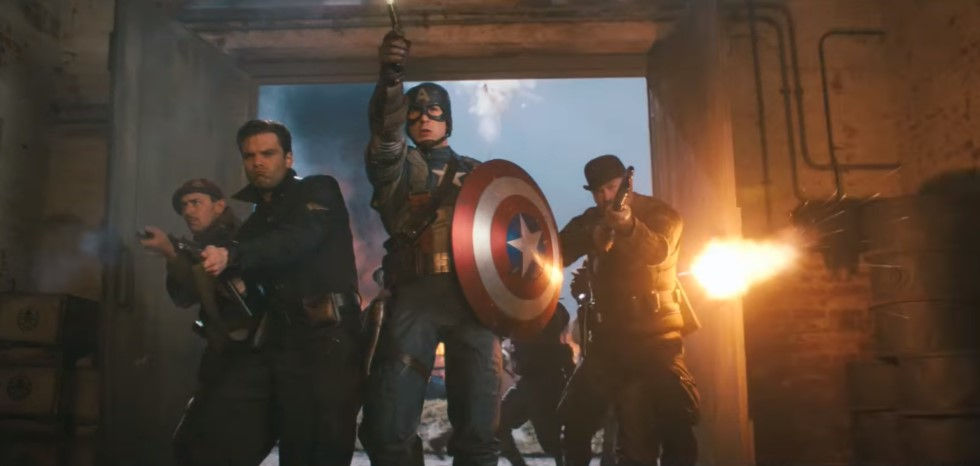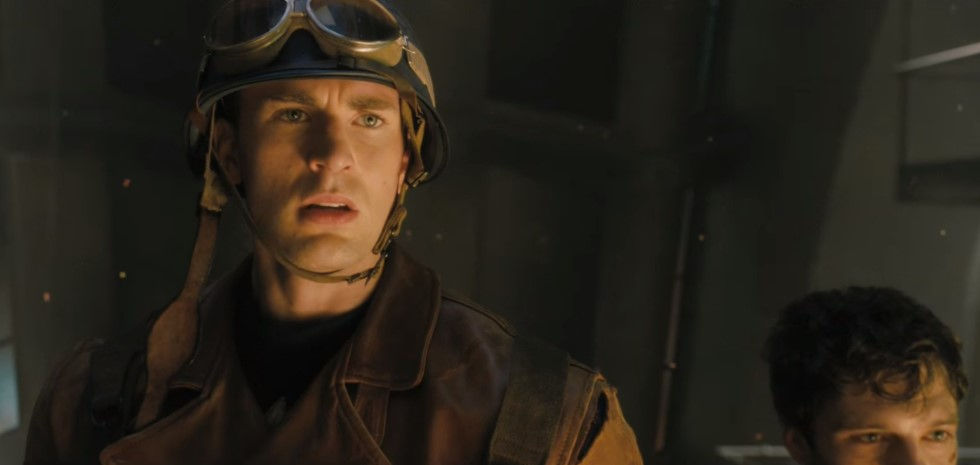Movie Review | Captain America: The First Avenger
- DB
- Jun 18, 2018
- 3 min read

Movie Summary: Steve Rogers, a rejected military soldier transforms into Captain America after taking a dose of a "Super-Soldier serum". But being Captain America comes at a price as he attempts to take down a war monger and a terrorist organisation. (IMDb)
Cap’s first movie may have actually been the fifth released in the Marvel Cinematic Universe, but it does make a lot more sense to watch it first thanks to being set decades before any of the other heroes show up – this time during a world war rather than an infinite one.
A lot of people jumped on the Captain America bandwagon after The Winter Soldier, but while the sequel is excellent as a film in its own right, it's only improved by watching The First Avenger before it so we can see exactly why Steve Rogers is a hero loved around the world these days.
It’s strange to say it, but the World War II setting makes for a very simple premise, with clear lines between good and evil rather than the shades of grey Cap would go on to encounter in later films. The set-up is simple: The Red Skull wants to conquer the world using an object called the Tesseract, and it’s up to Cap to stop him.
Looking back, a lot of people were sceptical that Chris Evans could pull off this particular role, especially with Captain America being seen as an uninteresting character used for blind American propaganda. However, after seeing the excellent Danny Boyle film Sunshine, I knew he would do just fine and so it has proven.
Not that he didn’t have help, of course – Hayley Atwell is fantastic as the highly-capable Agent Peggy Carter, Tommy Lee Jones is perfect as Colonel Chester Phillips, and Dominic Cooper is just as good as Howard Stark. A special note too for Stanley Tucci as Dr Erskine, a humble genius without the playboy tendencies or arrogance of the Stark family, whose formula turns skinny Steve into Captain America in the first place.
While the villains aren’t anything special, Hugo Weaving is still fun as the Red Skull even if he might not have enjoyed the role, and Toby Jones is also good as the quietly creepy Arnim Zola, supplying the weapons for the Skull’s forces.
It’s strange to think of a World War II setting as a ‘fun’ time, although Cap does suffer loss when his best friend, Bucky, falls to his apparent death in the middle of the film. But I think that most Marvel Studios films have managed that balance of being playful without being mocking or disrespectful, and that fine line continues here.
The real success of this film is establishing Captain America as a hero that is worth investing in, with Evans playing the role as sincerely earnest without coming across as naïve or laughable. Steve is a nice guy, but will fight ferociously to save as many people as he can, even risking his own life in a suicidal manoeuvre at the film’s climax.

That ending was probably the bravest Marvel Studios had done before Avengers: Infinity War came along and blew it out of the water, but it doesn’t lessen the tragedy of what Steve loses thanks to being taken out of action for seventy years while stuck in Arctic ice. The relationship between Steve and Peggy feels innocently sweet, and is something that would come back more than once in the sequels.
Despite the constant praise so far, it’s not a perfect film by any means. This was made in the days of Ike Perlmutter’s control of the studio, and the relative cheapness is apparent on occasions. The action isn’t too hot either, especially during montages that give no sense of the passage of time and make it feel like Cap was on the verge of wrapping up the war in the space of a few weeks rather than years.
Also, the fun ‘adventure’ tone of the film and super-heroic sci-fi nature of the plot means that the character material works, but the story never feels quite as dramatic or impactful as it really should considering the setting.
Captain America: The First Avenger is a good film that relies on its lead characters to carry an otherwise shallow story – much like Wonder Woman. Fortunately, also like the DC film, the biggest plus is that it succeeds extremely well, nailing the major emotional beats and lifting the film up higher than it would have otherwise been.











Comentários